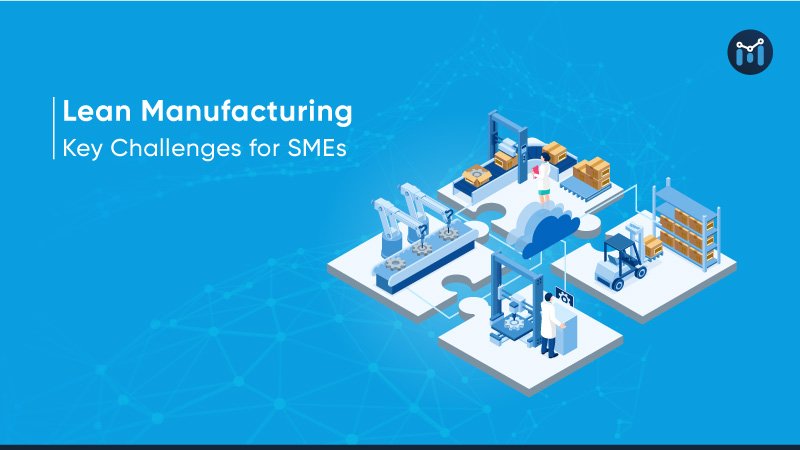LEAN Manufacturing – Key Challenges for SMEs

With the evolution of Industrial Revolution, new technologies emerged for manufacturing processes. As the focus shifted from manufacturing technologies to efficient processes, we saw a wave of new principles of manufacturing such as LEAN, SiX-SIGMA, TQM etc.
These principles were practiced and perfected by leading organizations that could deploy resources. These organizations put management focus in adopting these principles. Adoption of these technologies by such high-volume driven companies demonstrated significant impact (financial and operational). The big players pushed these principles in their supply chain/Value chain partners to cascade the impact. These supply chain partners were essentially the Small and Medium Enterprises.
However, the adoption of these principles did not benefit the SME sector as anticipated. For many SMEs, these principles have been ‘lost in translation’. Some obvious reasons for a rather poor rate of adoption of these principles are:
- Many SME’s do not have enough trained & skilled manpower to understand and implement.
- Often these processes and principles are limited to compliances and audits and thus a wholehearted integration is never done in SMEs.
- There is a perception that cost of implementing it would outweigh benefits.
- Different functions and departments operate on disconnected platforms. Integrating and making them ‘talk’ to each other is a significant effort.
- Mind-set and reluctance to convert over to new practices and approaches is a roadblock.
- For long time software had high cost of ownership that did not allow SMEs to come forward.
- Top Management direction and belief to execute these projects is not there.
The core principles of lean manufacturing include continuous improvement, waste reduction, just-in-time production, and respect for people.
With some of these above challenges, SMEs are caught up with how to adopt with times to become efficient and profitable. On that note the panacea to the problem will lie within:
- Choose the right technology, platform, architecture to manage/monitor/report processes.
- Focus not just on capturing data from machines and shopfloor rather deep dive on RCA (Root Cause Analysis) for anomalies.
- Do not let different departments thrive in ‘Silos’.
More points are discussed related to SMEs in our blog Small and Medium Enterprises in India: A Perspective over Time, please have a look into the same.[/vc_column_text][/vc_column][/vc_row]
One comment
Comments are closed.

This is so true. The need of the hour is for SMEs to do a hard thinking and prepare for the larger game